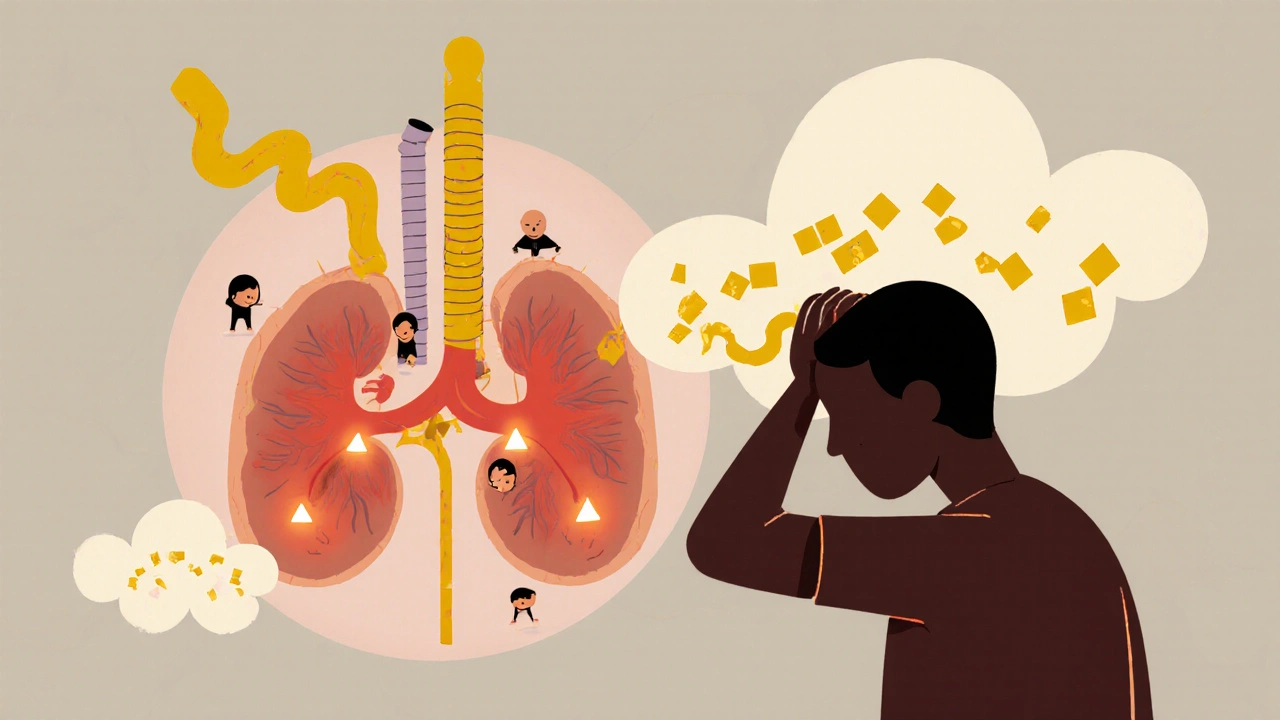High Calcium: What It Means for Your Bones, Heart, and Medications
When your body has too much high calcium, an abnormally elevated level of calcium in the blood that can disrupt nerve, muscle, and heart function. Also known as hypercalcemia, it doesn’t always come from eating too much dairy—it often starts with medications, supplements, or underlying conditions like overactive parathyroid glands or certain cancers. Most people think calcium is only for strong bones, but when it builds up in the wrong places, it can cause fatigue, confusion, frequent urination, and even heart rhythm problems.
Calcium supplements, commonly taken for bone health, especially by post-menopausal women and older adults, are a major contributor to high calcium when used without medical guidance. Many take them daily thinking they’re harmless, but without checking blood levels, they can quietly push calcium into the danger zone. Same goes for vitamin D supplements—too much of it boosts calcium absorption, turning a good thing into a health risk. And it’s not just supplements. Some medications, like thiazide diuretics and lithium, can also cause calcium to rise. If you’re on any of these, your doctor should monitor your levels regularly.
Kidney health, how well your kidneys filter waste and balance minerals like calcium, plays a huge role here. Your kidneys are the main system that removes excess calcium. If they’re not working right—like in chronic kidney disease—calcium doesn’t get flushed out. That’s why people with kidney issues often have to watch their calcium intake closely. In fact, many of the posts in this collection focus on how medications and diet affect kidney patients, because calcium imbalance is a silent problem that can make kidney disease worse.
High calcium doesn’t always cause symptoms at first. That’s why it’s often found by accident during routine blood tests. But if you’re feeling unusually tired, thirsty, or confused, or if you’ve been taking calcium or vitamin D for years without a checkup, it’s time to ask for a blood test. It’s simple, cheap, and could prevent serious complications like kidney stones, bone loss, or heart issues.
The good news? You can manage high calcium once you know what’s causing it. Sometimes it’s just stopping a supplement. Other times, it means adjusting your meds or treating an underlying condition. This collection brings together real, practical advice from people who’ve dealt with this—whether it’s understanding how calcium interacts with blood thinners, how kidney disease changes your needs, or why some meds make calcium levels climb. You’ll find clear guides on what to watch for, what to avoid, and how to talk to your doctor about it—no jargon, no fluff, just what works.
Hyperparathyroidism: High Calcium, Bone Loss, and When Surgery Is Necessary

Hyperparathyroidism causes high calcium, bone loss, and chronic fatigue. Surgery is the only cure. Learn the signs, when to act, and what to expect after treatment.
- November 20 2025
- Tony Newman
- 12 Comments
